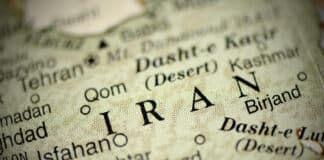Ireland has become the first European Union country to introduce a law banning imports from Israeli settlements in the West Bank and East Jerusalem. The proposed legislation, titled the Israeli Settlements (Prohibition of Importation of Goods) Bill 2025, targets goods produced in areas considered occupied by Israel, aligning with a recent advisory opinion from the International Court of Justice.
The bill, backed by Ireland’s Cabinet and Foreign Affairs Minister Simon Harris, restricts the import of goods such as dates, olives, and timber from Israeli settlements. It does not apply to Israeli goods produced within internationally recognized borders. Though the trade volume involved is minimal—about €685,000 over four years—the government framed the action as a principled stand under international law.
Harris stated the legislation reflects Ireland’s commitment to using “every lever at its disposal” in response to what he called “genocidal activity” in Gaza. The move follows Ireland’s recognition of Palestinian statehood in 2024 and signals continued alignment with Palestinian causes on the international stage.
The bill has been sent to the Oireachtas Committee on Foreign Affairs and Trade for pre-legislative scrutiny. It is expected to move forward later this year. If passed, the law would set a precedent for EU member states, challenging the bloc’s trade rules that typically prevent unilateral bans.
Critics, including former Minister Alan Shatter, denounced the bill as discriminatory, suggesting it unfairly targets goods produced by Jews in disputed areas. Israel, which closed its embassy in Dublin in late 2024 over prior tensions, is expected to view the legislation as a hostile act.
This development underscores deepening diplomatic fractures between Ireland and Israel and could influence similar legislative pushes across Europe. The bill’s symbolic and political weight may outweigh its economic impact, but its long-term effects on EU-Israel relations remain uncertain.





